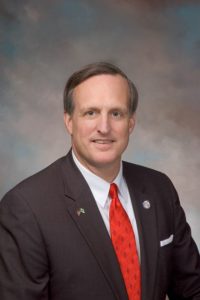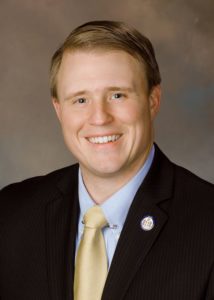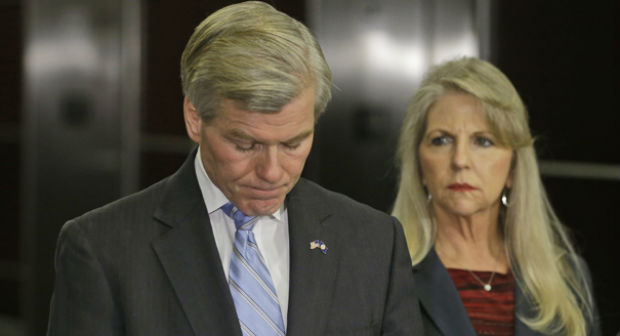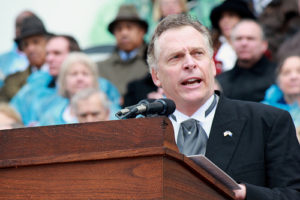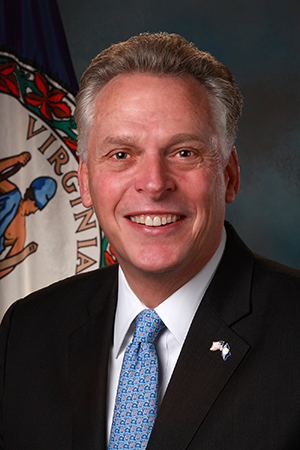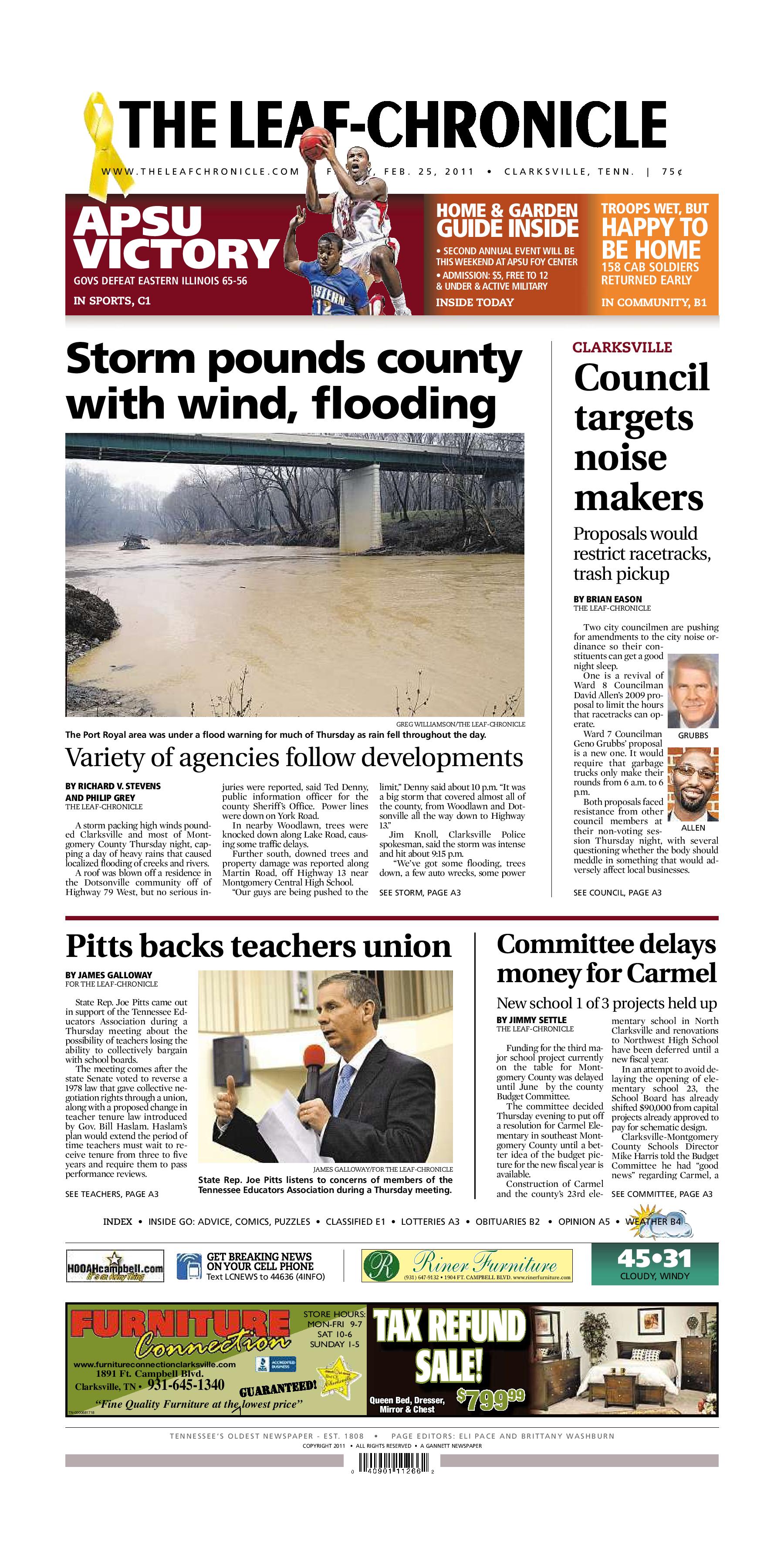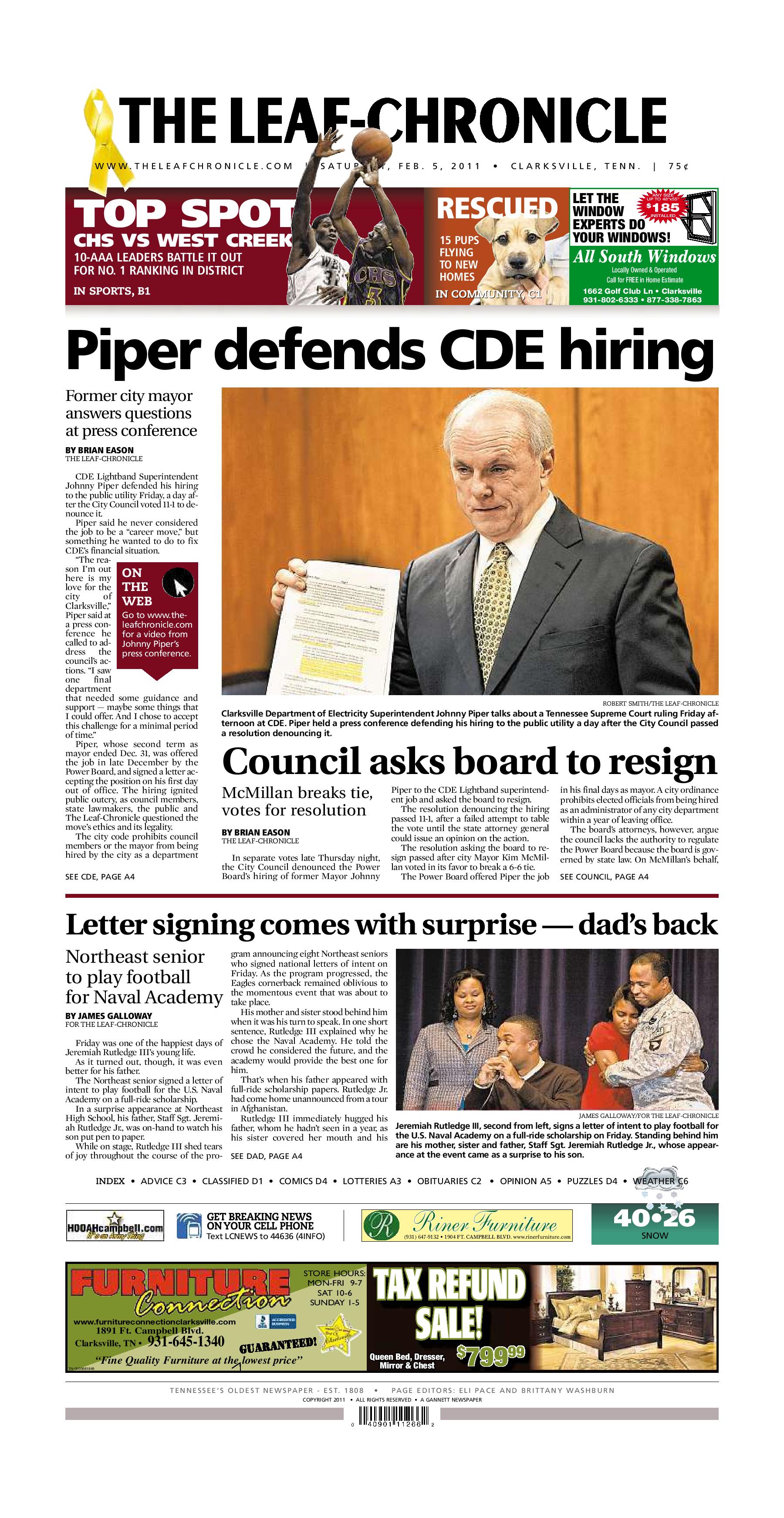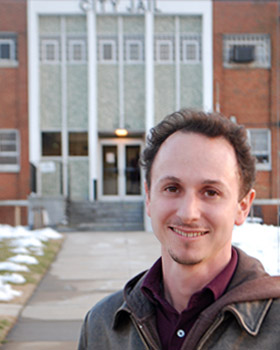
The smoke-filled writers’ rooms as seen on TV and depicted in books – even those where we work – all share a few similarities. Many are littered with papers, pictures, notes and reminders hung on the walls. Some workshops bear striking resemblance to the cubicle wastelands of “Office Space” or the fluorescent nightmares of Chuck Palahniuk’s “Fight Club.” Some are even racially homogeneous, or populated only by men. But rarely do we learn about the writers’ room where every writer is incarcerated, where laws command them to stay.
Such is the case at the Richmond City Justice Center – formerly known as the Richmond City Jail – in Virginia, where Dr. David Coogan and his colleagues have spent the last four years conducting Open Minds, a writer’s workshop that gives inmates the opportunity to develop their memoirs in a safe zone – a place where confined men are free to explore themselves – and document the long, unbroken chain of events that brought them to this room.
“I had a hard time believing that they were not like me,” Coogan said. “I refused to put them into a ‘they’ category. I figured some of them had to be inquisitive, intelligent, creative – not all of them, but some of them – would have to be like me, or the students I meet at VCU, and would want to write their ways out of the lifestyle that got them there.”
Coogan said his current line of work began as an exploration. “I wanted to see if writing could help people change their lives,” Coogan said, “and I thought, ‘I have the resources. I have the motive. I have the time. I have the incentive.’”
Coogan’s incentive became the muted public reaction to a gang-rape which took place near his home in the city.
“I was overwhelmed at – not so much the crime itself – but the reactions to the crime,” he said. “What really floored me was that nothing was being done about it.”
Coogan said he wanted to do something. His response, from the perspective of a writing teacher and scholar of public rhetoric, “was to inquire: What is the cause of crime? And are there some people who get caught up in crime who don’t know why, and want to know why?”
He began volunteering through Offender Aid and Restoration in 2005. OAR is a nonprofit organization working with ex-offenders in the downtown area. While there, a case worker suggested he take his ambitions to the jail where he could start teaching writing.
“And she said, ‘If you really want to find out if writing can help people, you should start there.”
An estimated two-thirds of released inmates are rearrested within three years of release, according to a 2005 report published by the Bureau of Justice Statistics, a federal agency that tracks criminal justice statistics. After five years, statistics show three-quarters of released prisoners are rearrested.
Coogan, however, knows the more higher education a person gets in prison, the less likely they are to return to crime.
Virginia Commonwealth University, where Coogan is an associate professor, will soon offer scholarships to students under Open Minds whose work stands out.
“They can come to VCU and take a couple of classes for free on their release,” Coogan said, adding that the school will announce more details at a later date.
Though a scholarship may present significant opportunities to writers emerging from Coogan’s workshop, there is still more to be done – or undone – for communities belonging to inmates of state and federal prisons.
Coogan said there are at least two angles from which the community can approach recovery and reduce recidivism.
“I’m very much concerned with the individuals who want to work from where they are in their lives and in their writing,” he said, “but I’m very concerned with the larger structural problems that our society has not fixed.”
Coogan identified what he described as a major obstacle to ex-offenders who, as a result of their incarceration, become ineligible for Pell grants: Through a provision of the 1994 omnibus crime bill signed into law by President Bill Clinton, anyone who has served time in a state or federal prison may not receive the federal Pell grant for higher education.
Dallas Pell, daughter of the late Claiborne Pell after whom the grant was named, told the Washington Post in December she asked Congress in October 2011 to reinstate Pell grants for prisoners, but made little progress, calling it “an emotional issue.”
“When people get out of prison, the overwhelming majority of people who have gotten education in prison, they’re so profoundly changed,” the Post quoted her as saying. “They go into their communities. They go into social work … It’s in everybody’s best interest to have people come out [of prison] that are rehabilitated and feel good about themselves.”
In 1994, the majority who voted in favor of the bill argued that the penalties for crime were not high enough, and referred to a scenario in which a police officer’s child may not receive the Pell grant, whereas an inmate that officer jailed may receive it.
Dean Turner, a formerly incarcerated student under Coogan, is now free. Turner compared writing with Coogan to “therapy.”
“I had a lot of demons that were still trapped inside my body and my mind,” Turner said. “Things that happened to me, things that I’ve done, people that passed in my life that I thought I had gotten over it – but never did – me being shot multiple times … three different occasions, being stabbed, being abused by my moms … being an abuser … it was more or less therapy for me – because I was like – I was getting it out.”
Turner said he learned some negative behaviors from his mother, whose own behaviors arose from within the poor conditions of their broken home and the absence of Turner’s father.
“That’s how I looked at it,” Turner said through laughter. “I’m not a psychiatrist. Now that I look at it, I have a tight relationship with my kids … and my mom.”
Coogan referred several times to a dichotomy of “us-versus-them” which separates people emotionally and mentally, dividing communities along imaginary lines.
“That vision of the inner city here, and the West End there, is a metaphor for what happens mentally when we allow a ‘they’ to form,” he said. “And ‘they’ could be anybody. In this case, we’re talking about criminals, or people accused of crimes but it could be anybody different from you.”
Coogan said he wanted to address divisive ideologies when he began teaching. He said his students in jail were not so different from his university students.
“I was again amazed at how right I was, that my faith in humanity was intact, that most of the men I met were no different than any of the men or women I would meet in free society,” he said. “I think if more people got over their mental hurdles – or the maps – if they crossed the borders of their mental maps maybe a little more often, we wouldn’t have so much division, and strife, and ignorance.”
Coogan said he thinks the reason why the United States has become the largest jailer in the world is “precisely because we’ve decided not to cross those mental borders.”
He said by making an “other” out of people who do not fit in with unrealistic societal expectations, more people are jailed who suffer from mental illness, sexual abuse and drug addiction.
“Their lives are touched by drugs,” he said, “but they are not well served by being in prison. When we treat a health problem as a criminal problem … we create economic and ethical failure.”
Inmates participating in the workshop established by Coogan in 2010 bridge writing and art-making with community-based theorizing, Dr. Elizabeth Canfield said. Canfield co-directs Open Minds with Coogan, and helps put together a book of writing from the workshop.
“We do music and visual arts as well,” Canfield said. “All of our cultural production stuff is around critical and creative things that we’re reading and looking at. We deal with issues of gender, economy, politics, race, those kinds of things.”
Coogan said writing is not a “cure-all” but a community fostered by a writing workshop “can be an amazing, creative, life-affirming, hopeful place.”
He said at the core of successful programs addressing recidivism is a community of caring people.
“What we lack in our prison system now is that larger sense of welcoming a person back into a community,” he said. “Maybe even while they’re incarcerated, cultivating the community for positive things.”
Professor Jonathan Waybright described Coogan as a “mentor,” adding that his workshop “comes very close to therapy.” Waybright began work as a teacher with Open Minds around 2011, shortly after the program formally began.
“His ongoing encouragement to explore and adjust my teaching techniques to newfound teaching venues really leads to an exploration of myself,” Waybright said. “And hopefully this will not only make me a better teacher but a better human being.”
Waybright said Coogan makes himself available to his colleagues in a continuous effort to improve the program’s ability to reach students.
“I’ve even sat on his porch and discussed … options to try, and suggestions for me to try,” Waybright said. “He reads through all my materials and … really, that’s the real ‘mentor’ part.”
Waybright, who leads summer study abroad groups to Israel, and is planning an archaeological study in Palestine, said Open Minds has an equally profound impact on his students for its “expanding” collaboration between vastly different experiences.
“You’re putting those two life experiences together: young, 21 … college student along with folks who have this tremendous, albeit challenging, life experience,” Waybright said. “And so the real role – and this is where David has been wonderful – is to learn how to get out of their way.”
Waybright emphasized the importance of allowing the weekly three-hour workshop between university students and Richmond City Justice Center students to unfold.
“You’ve got to get those two groups speaking, discussing, reading each other’s writing together,” he said. “I can’t imagine a higher-impact student engagement.”
While the writer’s workshop is a powerful tool of academic and technical expansion, Coogan said writing alone cannot be credited for reducing recidivism.
“Everybody wants to know what will stop people from this cycle, but the problems are intense.”
He said writing gives people a perspective on problems such as drug addiction, joblessness, poverty and broken family relationships.
“Writing gives you a perspective on how to organize your life and to kind of pivot more gracefully between all the dilemmas that you face, because some of the men that I work with had already decided that they were going to change their lives before they started writing, and writing really gave them the support and the commitment.”
Coogan added that some writers discover they had not lived to their fullest potential during the workshop, where changes occurred during the writing process.
Coogan gestured to a filing cabinet behind his road bike.
“That whole bottom drawer is filled with their handwritten drafts,” he said. “Eventually, I realized that this was more than just a small memoir project.”
Many of their stories are going into his book, “Writing Our Way Out: Memoirs From Jail” which will be published next year. The book follows his own account of teaching the many dozens of men who came through his class, and features many of their stories as well.
Coogan said the intensity of his writers and their commitment overwhelmed him.
“They kept writing throughout 2006 all the way up until 2010. And they recruited new writers into the project. Things sifted out until eventually, the writers you see … stuck with it and kept in contact with me, and we are now ready to publish our book this spring,” Coogan said. “So I was right, I like to think, all those years ago when I said, ‘Some of them have to be as creative and as open minded and as committed as I am to the process of writing.'”
David Coogan authored the 2009 book “Moving Students into Social Movements” and he is co-editor of “The Public Work of Rhetoric: Citizen Scholars and Civic Engagement” which came out in 2010.

